For days ago, I ask a question on how to use the edge collapse with Assimp. Smooth the obj and remove duplicated vertices in software are sloved the basic problem that could make edge collapse work, I mean it work because it could be simplicated by MeshLab like this:

It looks good in MeshLab, but I then do it in my engine which used Assimp and OpenMesh. The problem is Assimp imported the specified vertices and Indices, that could let the halfedge miss the opposite pair (Is this called non-manifold?). The result snapshot use OpenMesh's Quadric Decimation:
To clear to find the problem, I do it without decimation and parse the OpenMesh data structure back directly. Everything is work fine as expect (I mean the result without decimation).
The code that I used to decimate the mesh:
Loader::BasicData Loader::TestEdgeCollapse(float vertices[], int vertexLength, int indices[], int indexLength, float texCoords[], int texCoordLength, float normals[], int normalLength)
{
// Mesh type
typedef OpenMesh::TriMesh_ArrayKernelT<> OPMesh;
// Decimater type
typedef OpenMesh::Decimater::DecimaterT< OPMesh > OPDecimater;
// Decimation Module Handle type
typedef OpenMesh::Decimater::ModQuadricT< OPMesh >::Handle HModQuadric;
OPMesh mesh;
std::vector<OPMesh::VertexHandle> vhandles;
int iteration = 0;
for (int i = 0; i < vertexLength; i += 3)
{
vhandles.push_back(mesh.add_vertex(OpenMesh::Vec3f(vertices[i], vertices[i + 1], vertices[i + 2])));
if (texCoords != nullptr)
mesh.set_texcoord2D(vhandles.back(),OpenMesh::Vec2f(texCoords[iteration * 2], texCoords[iteration * 2 + 1]));
if (normals != nullptr)
mesh.set_normal(vhandles.back(), OpenMesh::Vec3f(normals[i], normals[i + 1], normals[i + 2]));
iteration++;
}
for (int i = 0; i < indexLength; i += 3)
mesh.add_face(vhandles[indices[i]], vhandles[indices[i + 1]], vhandles[indices[i + 2]]);
OPDecimater decimater(mesh);
HModQuadric hModQuadric;
decimater.add(hModQuadric);
decimater.module(hModQuadric).unset_max_err();
decimater.initialize();
//decimater.decimate(); // without this, everything is fine as expect.
mesh.garbage_collection();
int verticesSize = mesh.n_vertices() * 3;
float* newVertices = new float[verticesSize];
int indicesSize = mesh.n_faces() * 3;
int* newIndices = new int[indicesSize];
float* newTexCoords = nullptr;
int texCoordSize = mesh.n_vertices() * 2;
if(mesh.has_vertex_texcoords2D())
newTexCoords = new float[texCoordSize];
float* newNormals = nullptr;
int normalSize = mesh.n_vertices() * 3;
if(mesh.has_vertex_normals())
newNormals = new float[normalSize];
Loader::BasicData data;
int index = 0;
for (v_it = mesh.vertices_begin(); v_it != mesh.vertices_end(); ++v_it)
{
OpenMesh::Vec3f &point = mesh.point(*v_it);
newVertices[index * 3] = point[0];
newVertices[index * 3 + 1] = point[1];
newVertices[index * 3 + 2] = point[2];
if (mesh.has_vertex_texcoords2D())
{
auto &tex = mesh.texcoord2D(*v_it);
newTexCoords[index * 2] = tex[0];
newTexCoords[index * 2 + 1] = tex[1];
}
if (mesh.has_vertex_normals())
{
auto &normal = mesh.normal(*v_it);
newNormals[index * 3] = normal[0];
newNormals[index * 3 + 1] = normal[1];
newNormals[index * 3 + 2] = normal[2];
}
index++;
}
index = 0;
for (f_it = mesh.faces_begin(); f_it != mesh.faces_end(); ++f_it)
for (fv_it = mesh.fv_ccwiter(*f_it); fv_it.is_valid(); ++fv_it)
{
int id = fv_it->idx();
newIndices[index] = id;
index++;
}
data.Indices = newIndices;
data.IndicesLength = indicesSize;
data.Vertices = newVertices;
data.VerticesLength = verticesSize;
data.TexCoords = nullptr;
data.TexCoordLength = -1;
data.Normals = nullptr;
data.NormalLength = -1;
if (mesh.has_vertex_texcoords2D())
{
data.TexCoords = newTexCoords;
data.TexCoordLength = texCoordSize;
}
if (mesh.has_vertex_normals())
{
data.Normals = newNormals;
data.NormalLength = normalSize;
}
return data;
}
Also provide the tree obj I tested, and the face data that generated by Assimp, I fetch out from visual studio debugger, that shows the problem that some of the indices could not find the index pair.


